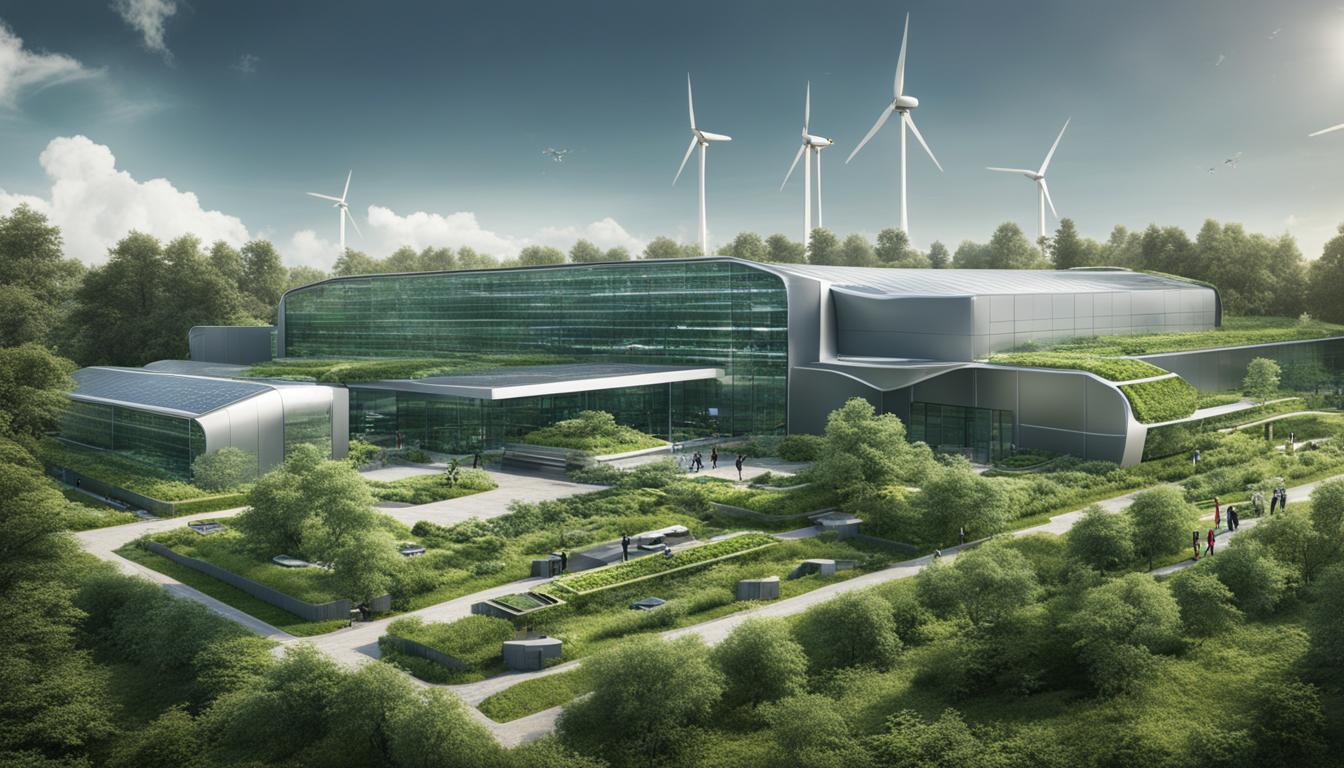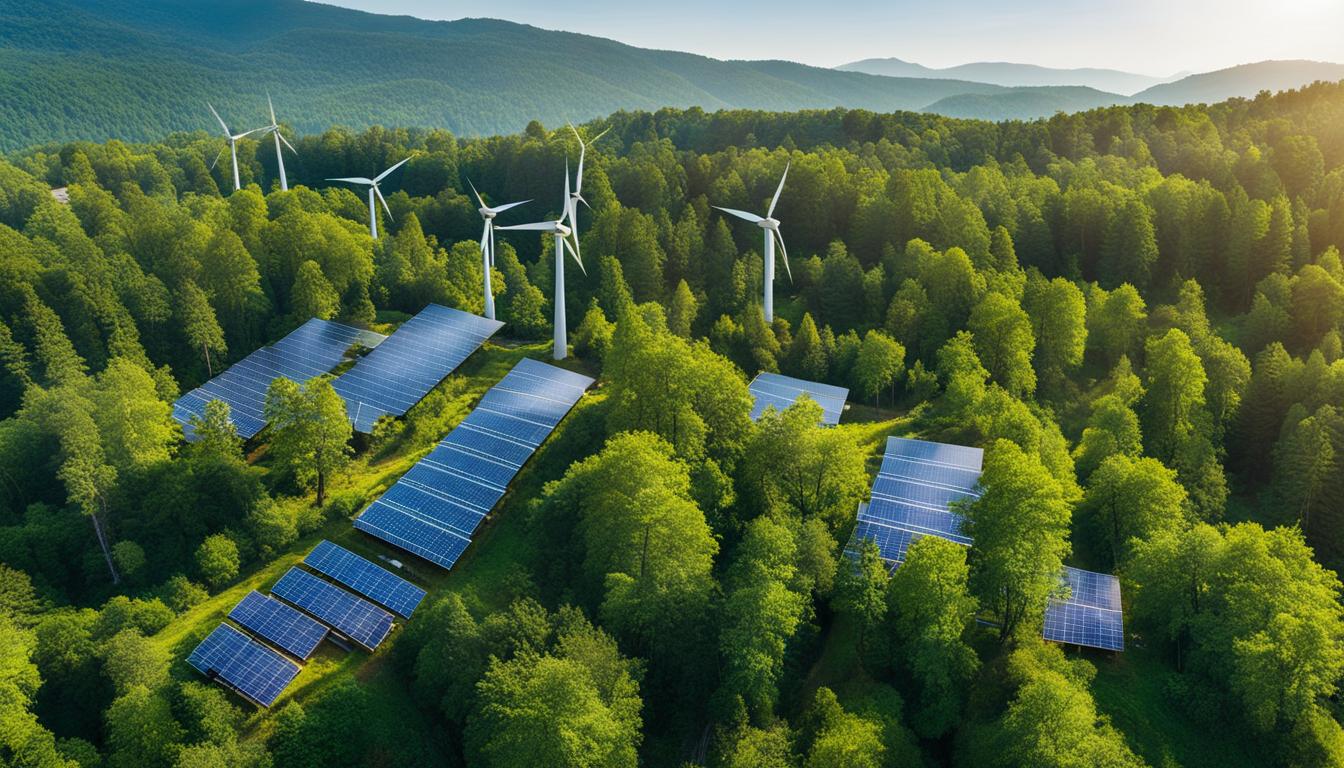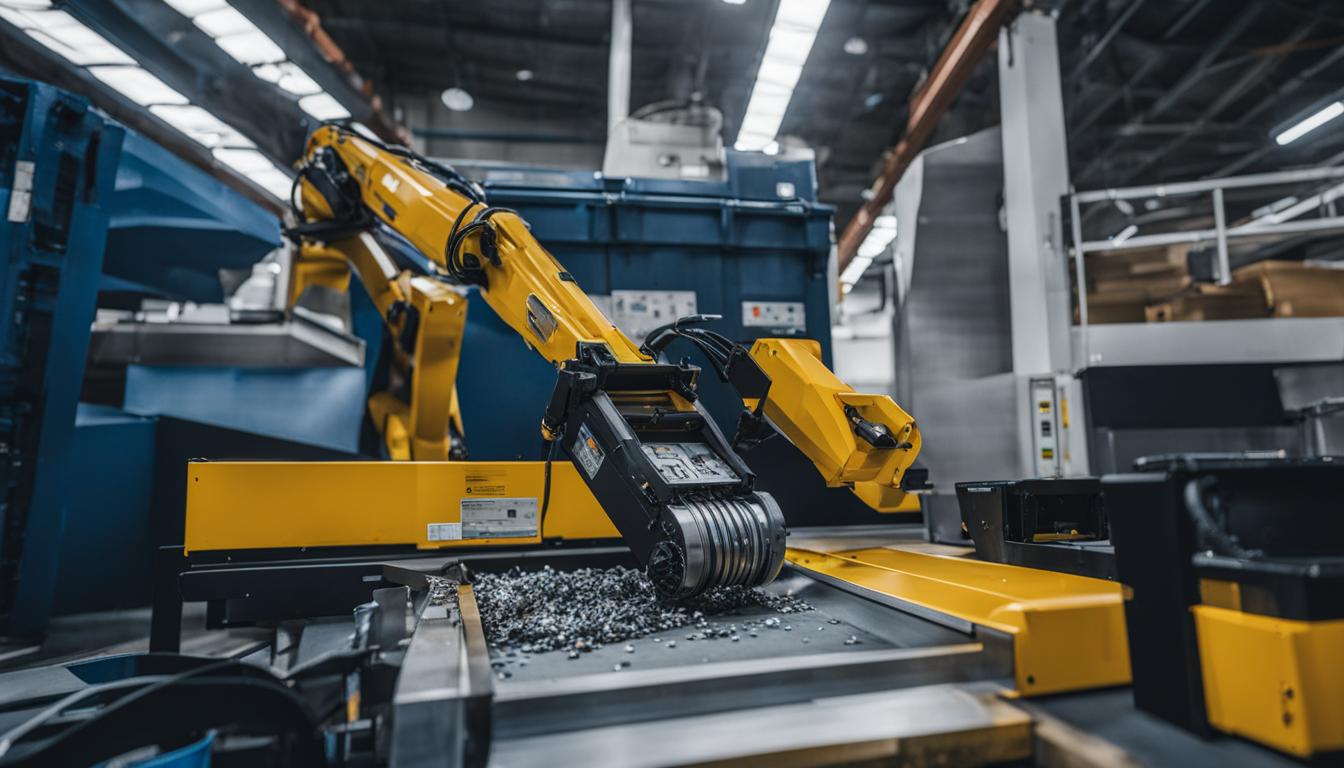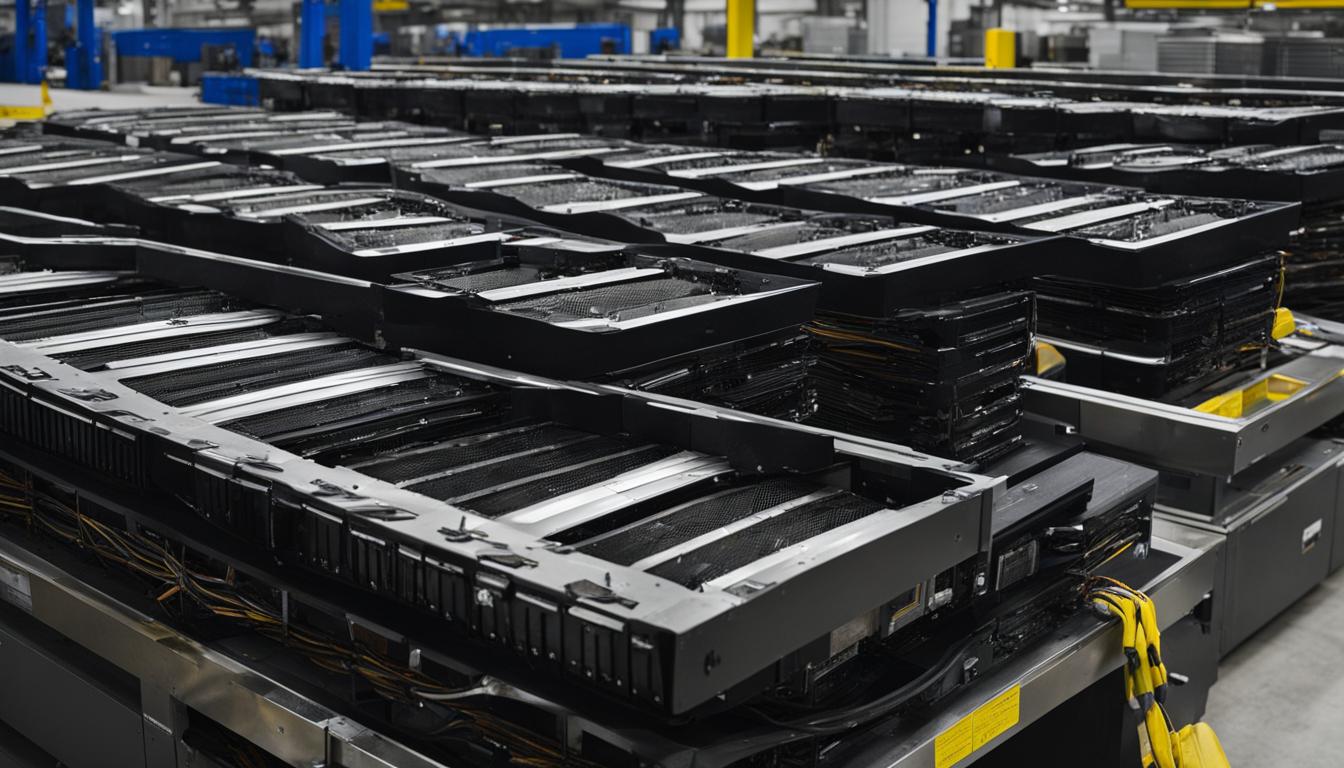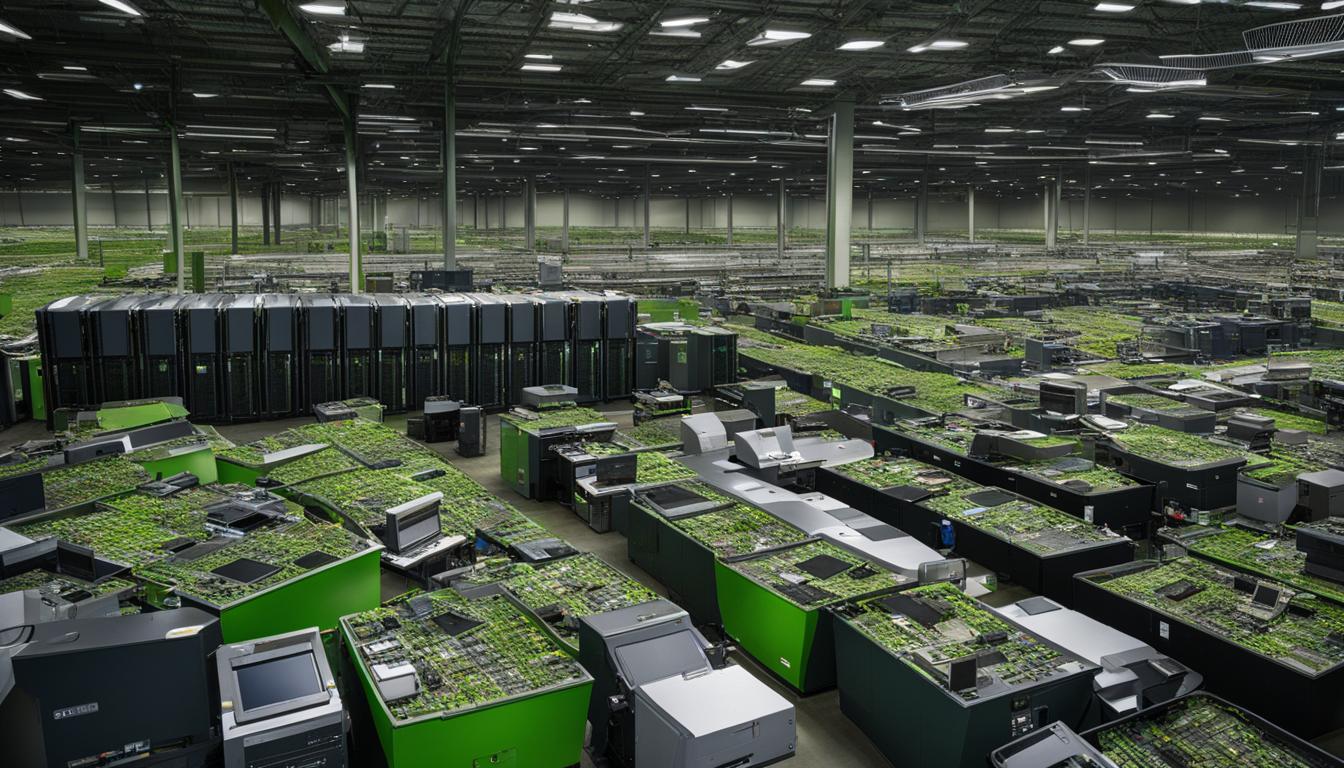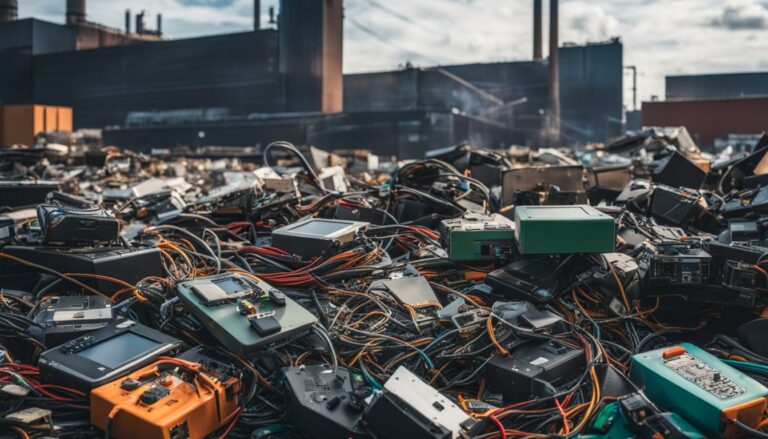The Interplay Between Data Centres and IT Recycling
The data centre industry has experienced significant growth in recent years in terms of performance, scale, and value. However, this growth comes with environmental impacts and costs. Supermicro’s annual report on the state of green data centres highlights the progress being made in green initiatives by data centre operators. While improvements are being made, there are still missed opportunities in data centre efficiencies. The report emphasises the importance of adopting new technologies to make data centres more competitive and potentially greener. Green data centres, which minimise energy use and environmental impact, can provide significant cost savings and contribute to a cleaner environment.
Key Takeaways:
- Data centres play a crucial role in the digital industry but also have environmental impacts.
- Green data centres offer sustainable IT solutions by minimising energy use and reducing environmental impact.
- Data centre operators need to adopt new technologies to improve efficiencies and reduce environmental costs.
- Green data centres contribute to significant cost savings and a cleaner environment.
- Embracing green initiatives in data centres is essential for a more sustainable future.
The Benefits of Green Data Centers
Green data centers offer numerous advantages, ranging from energy efficiency to cost savings and e-waste reduction. These sustainable facilities are designed to minimize their environmental impact while still meeting the demanding needs of modern data processing.
One of the key benefits of green data centers is their impressive energy efficiency. By incorporating advanced technologies and innovative design principles, these facilities consume less electricity compared to traditional data centers. On average, green data centers save over 80% in environmental impact and can reduce energy consumption enough to power Las Vegas for 37 years.
Aside from energy efficiency, green data centers also contribute to substantial cost savings. By consuming less electric power, these facilities reduce operational and capital expenses. Companies running their data centers in a green manner can significantly lower their electricity bills, resulting in long-term financial benefits.
Green data centers save over 80% in environmental impact and can reduce energy consumption enough to power Las Vegas for 37 years.
Furthermore, green data centers play a crucial role in e-waste reduction. These eco-friendly facilities generate less electronic waste compared to standard data centers. By implementing sustainable practices and responsible recycling measures, green data centers contribute to a cleaner environment and a more sustainable future.
The Benefits of Green Data Centers:
- Significant energy efficiency
- Cost savings
- Reduction in e-waste
Table: Cost Comparison between Green Data Centers and Traditional Data Centers
| Expense | Green Data Centers | Traditional Data Centers |
|---|---|---|
| Electricity bills | Lower | Higher |
| Environmental impact | Reduced | Higher |
| E-waste generation | Less | More |
The Inefficiencies of Data Centers
Data centers, despite their crucial role in powering the digital world, suffer from significant inefficiencies that contribute to excessive energy consumption and waste. These inefficiencies stem from the design and operational practices of many data centers, which result in a wasteful use of resources. A closer examination of these inefficiencies highlights the need for urgent action to address the environmental impact of data centers.
One of the key inefficiencies in data centers is the excessive energy consumption. Many data centers operate at maximum capacity around the clock, leading to an unnecessary waste of electricity. Shockingly, it is estimated that data centers utilize only 6% to 12% of the electricity for actual computations, while the rest is consumed by idle servers. This wasteful use of power not only contributes to higher energy bills but also has a detrimental impact on the environment.
“The inefficient use of power and the lack of compatible infrastructure contribute significantly to the negative environmental impact of data centers.”
Another significant inefficiency in data centers is the generation of waste. The constant upgrades and replacements of equipment result in a high volume of electronic waste. This waste contains hazardous materials that can harm the environment if not properly disposed of. Additionally, data centers often rely on diesel generators as backup power sources, leading to the emission of harmful pollutants.
The Environmental Impact of Inefficient Data Centers
The inefficiencies of data centers have a considerable environmental impact. The excessive energy consumption contributes to increased carbon emissions and accelerates climate change. The generation of electronic waste poses a threat to ecosystems and human health due to the hazardous materials contained within it. Furthermore, the reliance on diesel generators worsens air pollution and poses risks to local communities.
Addressing the inefficiencies of data centers is crucial to minimize their environmental impact. By adopting more sustainable practices and technologies, such as energy-efficient hardware, virtualization, and renewable energy sources, data centers can significantly reduce their carbon footprint. Additionally, implementing proper waste management and recycling strategies can mitigate the impact of electronic waste.
| Data Center Inefficiencies | Impact |
|---|---|
| Excessive energy consumption | Increased carbon emissions and climate change |
| Generation of electronic waste | Environmental pollution and health risks |
| Reliance on diesel generators | Air pollution and community hazards |
The table above summarizes the environmental impact of data center inefficiencies and emphasizes the urgency of adopting more sustainable practices. It is essential for data center operators to prioritize energy efficiency, waste reduction, and renewable energy integration to minimize their environmental footprint and contribute to a greener digital future.
The Role of Industry 4.0 and Circular Economy in Smart Healthcare Waste Disposal
The concept of Industry 4.0, combined with the principles of circular economy, plays a crucial role in developing smart cities and improving waste disposal systems, particularly in the healthcare sector. The integration of digital technologies, such as the Internet of Things (IoT) and artificial intelligence (AI), through Industry 4.0 platforms enables effective tracking and management of healthcare waste, leading to more efficient and sustainable waste disposal processes.
Smart cities, powered by Industry 4.0 technologies, leverage data-driven insights and automation to enhance waste management systems. By implementing advanced sensors and real-time monitoring, healthcare centers can optimize waste collection, disposal, and recycling processes. This enables the identification of bottlenecks and areas for improvement, allowing for more precise resource allocation and reducing the environmental impact of healthcare waste disposal.
The circular economy principles, which focus on maximizing resource efficiency and reducing waste, are essential in designing smart healthcare waste disposal systems. By applying circular economy principles, smart cities can create closed-loop systems where waste is seen as a valuable resource. Waste materials can be repurposed or recycled, minimizing the depletion of resources and reducing the overall environmental footprint.
In summary, the integration of Industry 4.0 technologies and circular economy principles in smart cities revolutionizes healthcare waste disposal. By leveraging digitalization and data-driven insights, healthcare waste management becomes more efficient, sustainable, and environmentally friendly.
Table: Benefits of Industry 4.0 and Circular Economy in Smart Healthcare Waste Disposal
| Benefits | Explanation |
|---|---|
| Optimized waste collection and disposal | Industry 4.0 technologies enable real-time monitoring and data analysis, leading to more precise waste collection and disposal processes. |
| Improved resource allocation | Data-driven insights help healthcare centers allocate resources more efficiently, reducing waste and optimizing resource usage. |
| Reduced environmental impact | The circular economy principles minimize waste and promote recycling, leading to a significant reduction in the environmental impact of healthcare waste disposal. |
| Enhanced sustainability | Industry 4.0 and circular economy principles contribute to the development of closed-loop systems, where waste materials are repurposed or recycled, promoting long-term sustainability. |
The Importance of Smart Healthcare Waste Disposal Planning
The Covid-19 pandemic has heightened the need for effective waste disposal systems in the healthcare sector. With the increasing demand for personal protective equipment (PPE) and the exponential growth of infectious waste, it is crucial to develop smart healthcare waste disposal plans that are efficient, sustainable, and capable of handling the current challenges. Circular economy and industry 4.0 technologies play a vital role in improving the efficiency and effectiveness of these waste management systems.
By integrating circular economy principles, healthcare facilities can maximize resource efficiency and reduce waste. This approach focuses on minimizing the amount of waste generated and ensuring that any waste produced is reused, recycled, or repurposed. Implementing circular economy strategies in healthcare waste disposal can help address the environmental impact of the pandemic and contribute to a more sustainable future.
The utilization of industry 4.0 technologies, such as the Internet of Things (IoT) and artificial intelligence (AI), further enhances the effectiveness of smart healthcare waste disposal planning. These technologies enable the digital connection of healthcare centers, waste disposal firms, and pollution control boards, creating a streamlined system for waste management. By leveraging real-time data and analytics, healthcare facilities can optimize their waste disposal processes, minimize costs, and improve overall sustainability.
Benefits of Smart Healthcare Waste Disposal Planning:
- Efficient and effective management of healthcare waste, particularly during the Covid-19 pandemic
- Reduced environmental impact through the adoption of circular economy principles
- Improved resource efficiency and waste reduction
- Real-time data and analytics for enhanced decision-making and optimization of waste disposal processes
- Streamlined collaboration between healthcare centers, waste disposal firms, and pollution control boards

In conclusion, smart healthcare waste disposal planning is essential for addressing the challenges posed by the Covid-19 pandemic and promoting sustainability in the healthcare sector. By integrating circular economy principles and industry 4.0 technologies, healthcare facilities can improve the efficiency, effectiveness, and overall sustainability of their waste disposal processes. This not only helps protect the environment but also ensures the safe handling and management of healthcare waste during these unprecedented times.
Conclusion
The interplay between data centres and IT recycling is crucial for promoting sustainability and efficiency in the digital world. Green data centres offer cost savings, reduce environmental impact, and contribute to eco-friendly practices. By embracing industry 4.0 technologies and circular economy principles, we can develop smart healthcare waste disposal systems, addressing the challenges posed by the Covid-19 pandemic and facilitating the transition to greener, more efficient data centres.
Data centres and IT recycling play a vital role in creating a sustainable future for the digital industry. By working together, we can ensure that data centres adopt sustainable IT solutions and incorporate green practices to reduce energy consumption and environmental impact. The progress being made in green initiatives by data centre operators is encouraging, but there are still missed opportunities in data centre efficiencies that need to be addressed.
In addition, industry 4.0 technologies and circular economy principles can revolutionise healthcare waste disposal systems. By digitally connecting healthcare centres, waste disposal firms, and pollution control boards, we can develop advanced and sustainable waste management solutions. The increasing demand for personal protective equipment and the exponential growth of infectious waste highlight the need for effective waste disposal systems in the context of the Covid-19 pandemic.
By prioritising sustainable IT solutions, adopting green practices in data centres, and developing smart healthcare waste disposal systems, we can create a more sustainable future for the digital industry. Data centres and IT recycling have the potential to make a significant impact in promoting sustainability and efficiency, benefitting both the environment and the bottom line.
FAQ
What are the benefits of green data centers?
Green data centers offer significant cost savings, reduce environmental impact, and contribute to eco-friendly practices.
How do green data centers save costs?
Green data centers consume less electric power, resulting in reduced operational and capital expenses.
What is the environmental impact of green data centers?
Green data centers generate less e-waste, contributing to a cleaner environment, and save over 80% in environmental impact compared to standard data centers.
What are the inefficiencies of data centers?
Data centers consume excessive amounts of energy, with only 6% to 12% used for computations. They also generate high levels of waste and rely on diesel generators.
How can industry 4.0 and circular economy principles improve waste disposal?
By integrating industry 4.0 technologies and circular economy principles, smart cities can develop advanced and sustainable waste management solutions.
What is the importance of smart healthcare waste disposal planning?
Smart healthcare waste disposal planning is critical in providing long-term solutions to healthcare waste problems, particularly in the context of the Covid-19 pandemic.
How can industry 4.0 and circular economy principles improve healthcare waste management?
Integrating industry 4.0 technologies and circular economy principles can improve the efficiency and sustainability of healthcare waste management.
What is the interplay between data centers and IT recycling?
Data centers and IT recycling work together to promote sustainability and efficiency in the digital industry.

